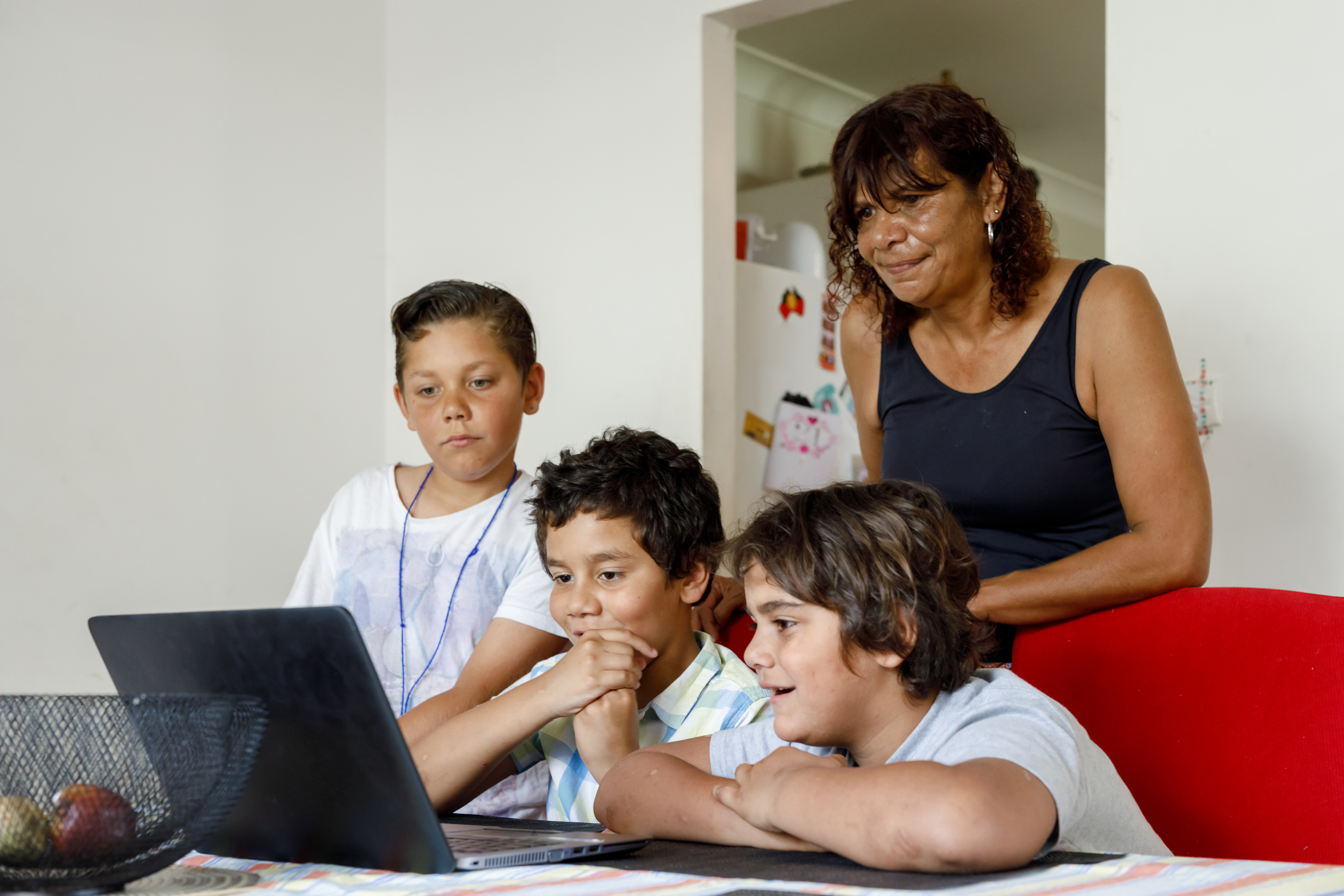Advice secondary menu
Not everyone online is who they say they are
What you need to know
Some people may contact children and young people online and pretend to be someone else, even another young person, to groom them.
When grooming a child, an offender might try to gain their trust and coerce or groom them to create and send child abuse material, or even meet up with them in person.
An offender might be a stranger or someone familiar. Online grooming can also happen fairly quickly and you may not necessarily notice the signs.
There are many myths and misconceptions about online grooming, learn more about these here.
Common behaviour to look out for includes:
Unsolicited friend requests
Some people may send random ‘friend’ or follower requests using multiple identities. They might contact as many children as possible hoping some will give into their demands.
Asking personal questions
Some people may ask how old a child is, where they go to school or whether they have any siblings. Sometimes they might ask where a child is using the device to work out if they are alone or unsupervised.
Promising something in exchange for self-generated child abuse material
Some people may offer ‘likes’ or gaming codes in exchange for child exploitation material. Some may even pretend to represent a company and tell the child or young person that they have potential to become a model, or a social media influencer. A child is asked to send photos, including content considered to be child abuse material.
Fake social media accounts
Some people may pose as celebrity or social media influencer and set up a look-alike social media account to approach a child and make them believe they’re interacting with the real account.
Advice for parents and carers
What you can do
- Always supervise your child when they are online
- Encourage your child to identify trusted adults who can help.
It’s never too early to start teaching young children about technology and online safety. The early learning resource Playing IT Safe can help you do this.
Playing IT Safe is a free resource developed for prior to school aged children. It’s an introduction to digital technology and online safety education and includes a series of play-based activities that children can undertake in early learning environments with educators, and at home with parents and carers.
You can access Playing IT Safe at http://www.playingitsafe.org.au
What you can do
- Learn about the features in the games or apps your child is using
- Disable the ‘chat’ function on apps and games. If your child is playing games with voice chat, enable the speakers so you can monitor the chat
- Teach your child about keeping personal information private.
At this age your child is more likely to be playing online games or watching videos.
You may not be aware that some games have an ‘in game’ chat function that include video, voice and text, to allow players to directly communicate with each other.
Offenders can use the direct message or chat functions to make contact with a child. They will then often direct the child to continue ‘chatting’ with them on other platforms to send images and ask for child abuse material.
Children in this age group who meet someone online may not necessarily consider them strangers. To them, they may be just another very real friend, particularly if they have been groomed into believing this.
It’s important your child understands that not everyone online is who they say they are. There is a difference between people they know and have met face-to-face, and people they know but have only 'met' online. It can be hard to prove someone’s identity because they might only tell them what they want them to know.
Your child should always know to say ‘no’ if someone is asking them for photos or videos and to seek help from you or another trusted adult straight away.
What you can do
- Have open and non-judgmental conversations about who your child might be interacting with online
- Your child should never agree to meet someone they have met online unless they have your permission and are accompanied by a trusted adult
- Support your child– coming forward can take courage and they may be reluctant to seek help if they fear they may be in trouble for their actions online.
If your child is in this age group they’re more likely to be using social media and fully interactive platforms with direct or instant messaging features.
They should only talk to those online they know in-person and trust. If your child is talking to people they don’t actually know, conversations need to stay on topic and they should say ‘no’ to any requests for images.
Your child may think they could spot an offender and it would be obvious, or that offenders have a certain stereotype. Offenders regularly take on other identities, including pretending to be another young person, celebrity or influencer.
Offenders can say all the right things or offer free things to make a young person feel special. Other times they can be quite open about the fact that they are older and some young people may find this exciting and flattering.
Critical thinking and questioning suspicious behaviour are key skills that empower a young person to identify that something isn’t right, and to take action. These are skills that you can continue to guide them on and encourage.
Your child may be interacting with someone they don’t know who is asking them to meet up in person, or they may play games that encourage meet ups or gatherings.
Your child should never agree to meet up with anyone they have only spoken to online, but if they do, they should be accompanied by you or another trusted adult.
Most importantly, if your child comes to you for help or you suspect online grooming, it is critical that you support your child. Offenders are manipulative and a child is never to blame for being in this situation.





